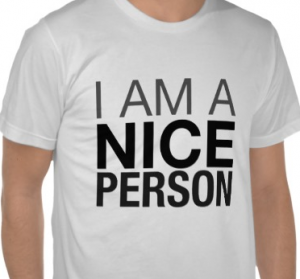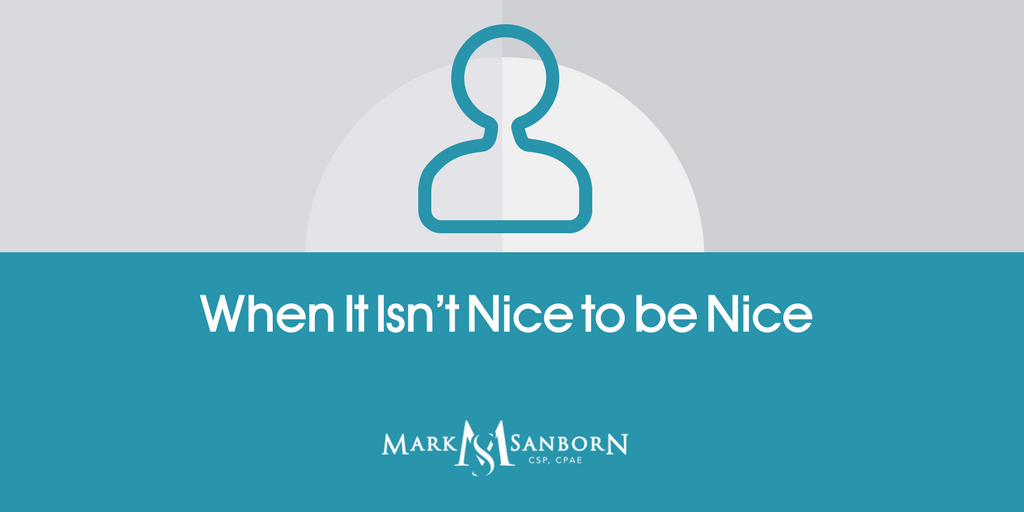A wise person wrote that if the only thing that could be said of a person was that he or she was a “nice guy” or  “nice person,” that person wasn’t living up to his or her potential.
“nice person,” that person wasn’t living up to his or her potential.
There’s nothing wrong with being a nice person. In today’s culture I think we could use more of them.
The potential problem is when that is the only thing that can be said of someone. Often, “nice” folks tell me they are taken advantage of or exploited. Sometimes they do things not because they should but because it supports their nice persona. And nice people can feel undervalued and under-appreciated.
I’ve tried to follow my father’s example. He was a truly nice guy, but he was no pushover. He had clear values, ethical commitments and could make his weight felt. He didn’t let being nice trump being a stand-up guy and he wasn’t intimidated into doing things he didn’t agree with.
What I learned is that there are at least two types of nice people: those with boundaries and those without. In other words, assertive nice versus passive nice. Assertive people choose to be nice but not used; passive nice have choices made for them, sometimes by others who aren’t scrupulous.
If you don’t know why you’re nice, or when nice sometimes isn’t the best course of action, you are setting yourself up for failure. Think about what other attributes you want included in the adjectives used to describe you other than simply “nice.”









Great clarification on the types of niceness Mark. I’ve seen, and been, pushover nice and it’s not always pretty. Eventually it leads to frustration and anger.
Dick Halverson, who was Chaplain of the U.S. Sentate, used to talk about people saying it was important to be good. But then he’d add, “Good for what?” He was concerned with specific contributions rather than general descriptions.
Nice… I mean good clarification Mark.
I would rather be know as “fair”, “friendly” and “firm”. For me, it seems like those words are easier to understand and to work with.